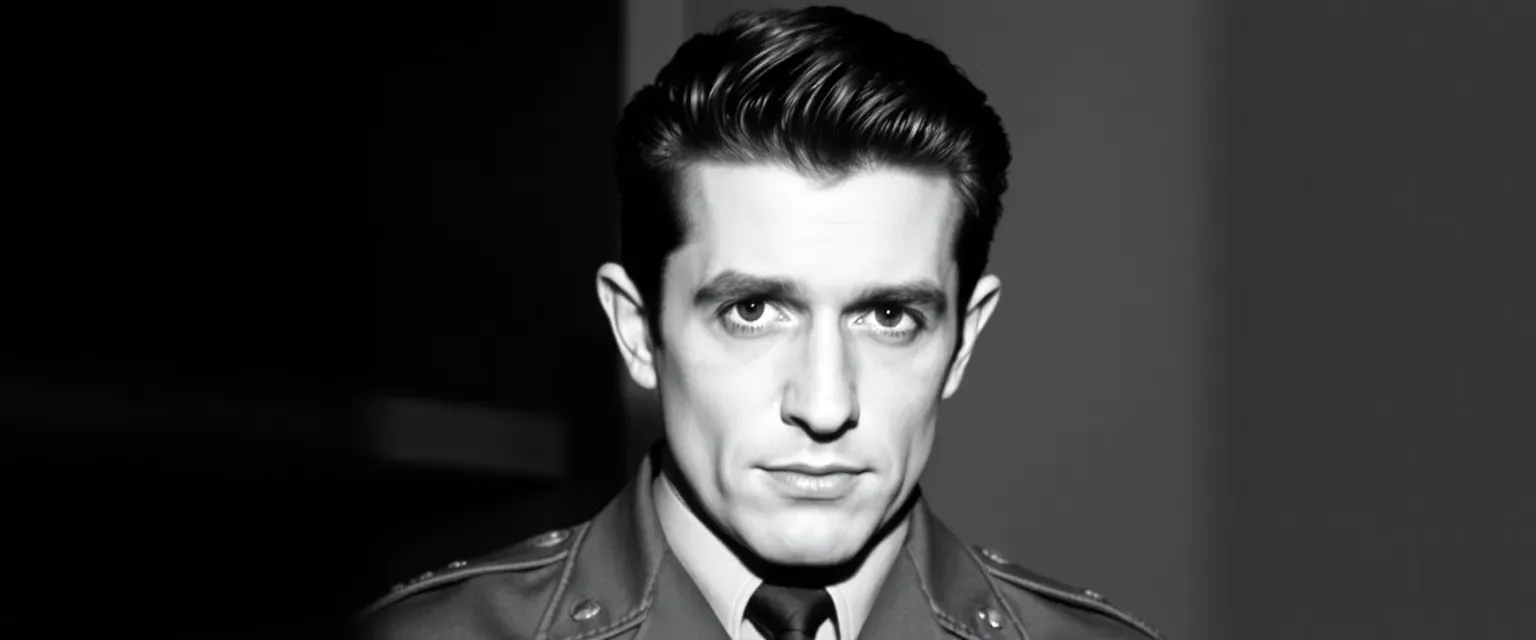Johnny Cash stands as a striking figure in his Air Force uniform, his tall, lean frame carrying both the weight of military discipline and an unmistakable air of restlessness. At twenty-five, his face already bears the weathered look of someone who has seen more than his years might suggest, with deep-set dark eyes that seem to hold secrets and stories yet untold. His black hair, meticulously slicked back according to military regulations, contrasts sharply with his pale complexion, giving him an almost gothic appearance that would later become his trademark.
During his service in Germany in 1952, Cash serves as a radio intercept operator with the U.S. Air Force Security Service, spending countless hours monitoring Soviet radio transmissions. His fingers, already calloused from years of guitar playing, tap restlessly on his desk during the long night shifts. He speaks with a distinctive Arkansas drawl that he can't quite shake, even in the formal military environment, and has a habit of unconsciously humming gospel tunes while working, much to the mixed amusement and annoyance of his fellow servicemen.
Behind his military bearing lies a soul torn between duty and passion. Cash's true love is music, and even in the structured environment of the Air Force, he manages to form his first band, playing at local German establishments whenever he gets the chance. His fellow airmen know him for his peculiar habit of carrying a small notebook where he scribbles lyrics during breaks, often drawing inspiration from the monotonous beeping of Morse code signals and the haunting stories he intercepts from behind the Iron Curtain.
The young airman struggles with the rigid structure of military life, his creative spirit constantly pushing against the boundaries of military discipline. He maintains a perfect service record, but those who serve with him can sense the internal battle between his obligation to serve and his burning desire to pursue his musical aspirations. His commanding officers note his exceptional attention to detail in his signals intelligence work, yet also observe his tendency to disappear during off-hours, often found in the base chapel, practicing guitar and working on his vocal techniques.
Cash's time in Germany is marked by a distinctive quirk - he has developed a habit of speaking in low, rhythmic patterns, almost like he's singing, even during casual conversations. This peculiarity, combined with his tendency to wear his uniform jacket slightly loose against regulations (to accommodate his guitar playing), makes him stand out among his peers. His fellow servicemen have nicknamed him 'The Undertaker' due to his preference for wearing black whenever out of uniform and his deep, sonorous voice.
Despite his exemplary service record, Cash carries a visible weight on his shoulders. The responsibility of monitoring Soviet communications during the height of the Cold War, combined with his personal struggles with identity and purpose, manifests in his tendency to withdraw into himself during off-duty hours. He finds solace in writing letters home to his family in Arkansas, each one filled with both carefully coded references to his classified work and passionate descriptions of his musical adventures in Germany.
